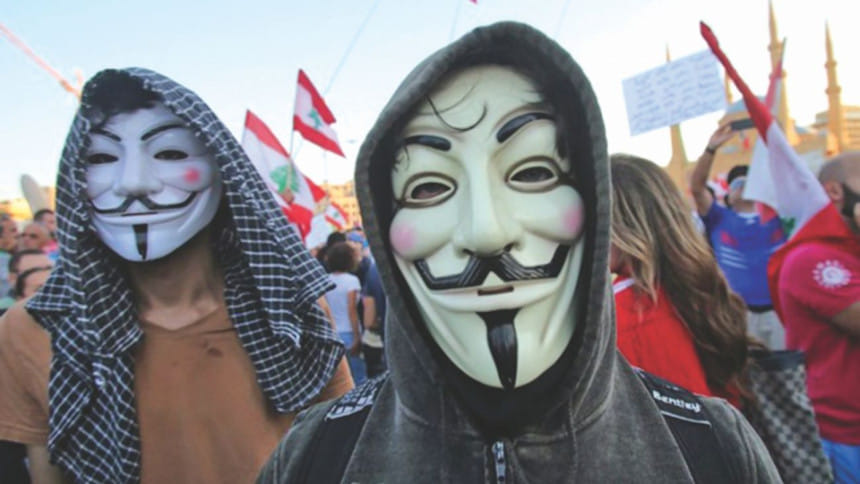Implications for Bangladesh

Over the past several weeks, the world witnessed the #YouStink anti-government protest in Lebanon popularly known as the 'garbage movement', comprising of people from across the sectarian and political spectrum. What led to such a movement? And does this movement bear any implications for Bangladesh?
This 'garbage movement' is a new instance to the world and in fact is a wake-up call to the world leaders that 'garbage' can also be a factor for a mass scale movement against the government. In fact, at the end of July this year, at least 1000 protesters gathered in Riad el-Solh Square demanding the government's resignation for what they called its inability to address a mounting waste management crisis . "More than 20,000 tonnes of rubbish fill streets," reported by Al-Jazeera on July 26, 2015. The movement gained momentum over the last two weeks of August, amounting more than 25,000 protesters, the single biggest rally in Lebanese history without religious or political affiliations.
Though it is argued that such protest arose due to the ineffectiveness of the government over garbage management, it can be argued that such a movement is a manifestation of the people's frustrations against the government over a number of issues including rampant corruption in the country, cronyism, sectarian politics and 'gang' tribal mentality. As one of the readers of New York Times wrote in August 27: "Sadly, the garbage in the street is the least of Lebanon's problems. The corruption and 'gang' tribal mentality has been with them for centuries. It is very sad as well that because of your 'sect' you are allowed to get a college degree, but not allowed to use it." In the words of Ali Swaidan, an analyst at the Lebanese Center for Policy Studies, "Now it's a matter of living for Lebanese people, not just a matter of garbage. There are electricity problems, water problems, security problems. The people are fed up with this government, with this political class in Lebanon".
Lebanon is a country which is severely divided by sect and class. After a 15-year long civil war ended in 1990, power and resources of the country were "essentially divided up among the former combatants in a system of sectarian political patronage." Besides, there has been no president in Lebanon in more than 20 months.
People of a country usually protest so that their grievances are heard by the state. Socio-economic development has hardly been noticed over several decades in Lebanon, leading people to feel angry. For instance, no new power plant has been built in Lebanon for decades. Moreover, despite having rich water resources, many families use salty well water to make up the shortfall, or buy water to fill tanks or purchase bottled drinking water for their daily use due to the absence of proper water management and utilisation. Teachers are hardly paid on time in Lebanon which also translates into regular protests.
The garbage movement might have some internal as well as external implications for Bangladesh. From the recent protests in Lebanon, the Bangladesh government could learn that if the grievances of people are not addressed effectively, it could inevitably result in a people's uprising. In fact, the Shahbagh movement is a clear manifestation of the public's demand for justice. Today, people, particularly the 67 percent of the country's youth, is well-equipped with technology, a facility they did not have access to a couple of decades ago. Now people are more well-aware about their rights than earlier. Our political class needs to keep in mind this.
Like Lebanon, can an issue like garbage management propel such a movement in Bangladesh? Along with the garbage and odour pollution, air, water, and food poisoning in Dhaka and other cities of the country has become very commonplace. It's thus unsurprising that Dhaka is often cited as one of the most polluted, uninhabitable cities in the world. Even though the mayoral election manifestos of the City Corporations promised a clean Dhaka once the aspirants were elected, the real picture remains unchanged. Thus, the absence of effective actions to address environment and health concerns in the country threatens the safety and health of the public. One can claim that such hygienic issues might be a cause of protest in the days to come.
In addition, the growing level of corruption in every sector of the country, the increased level of unemployment rates and the severe traffic jam problem needs to quickly and efficiently addressed as these are causes of grievances for the country's population.
Externally, Bangladesh needs to take good care of Bangladeshi expatriates in Lebanon. It is estimated that more than 10,000 Bangladeshi diaspora live in Lebanon. Hence, Bangladesh needs to take a look at the developments in Lebanon and take appropriate actions in that regard.
The bottom line is that even though the socio-economic development in Bangladesh is highly appreciable, the issues mentioned above need to be address at the earliest for the greater interest of everyone. Politics needs to be re-defined as a social practice 'of the people, by the people and for the people.'
The writer is Lecturer of the Department of International Relations, University of Rajshahi. Email: [email protected].

 For all latest news, follow The Daily Star's Google News channel.
For all latest news, follow The Daily Star's Google News channel. 



Comments